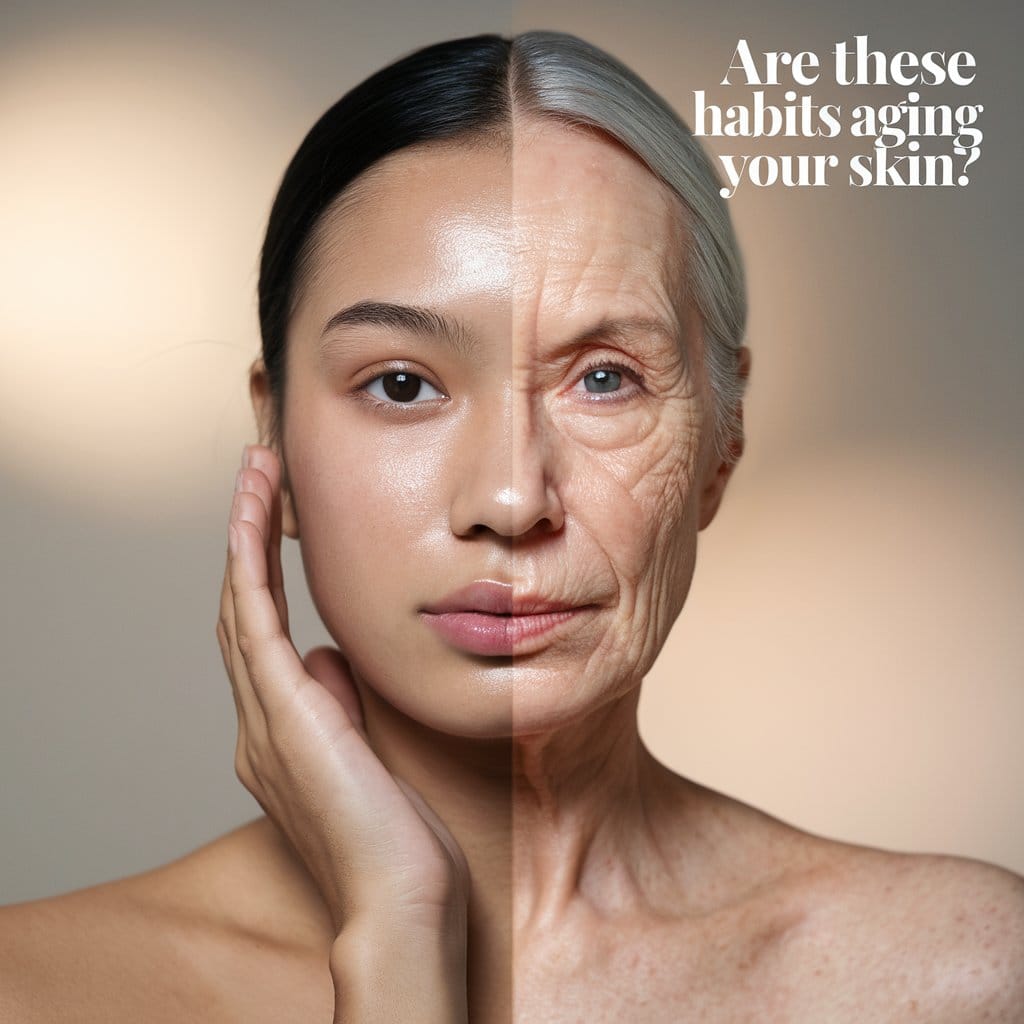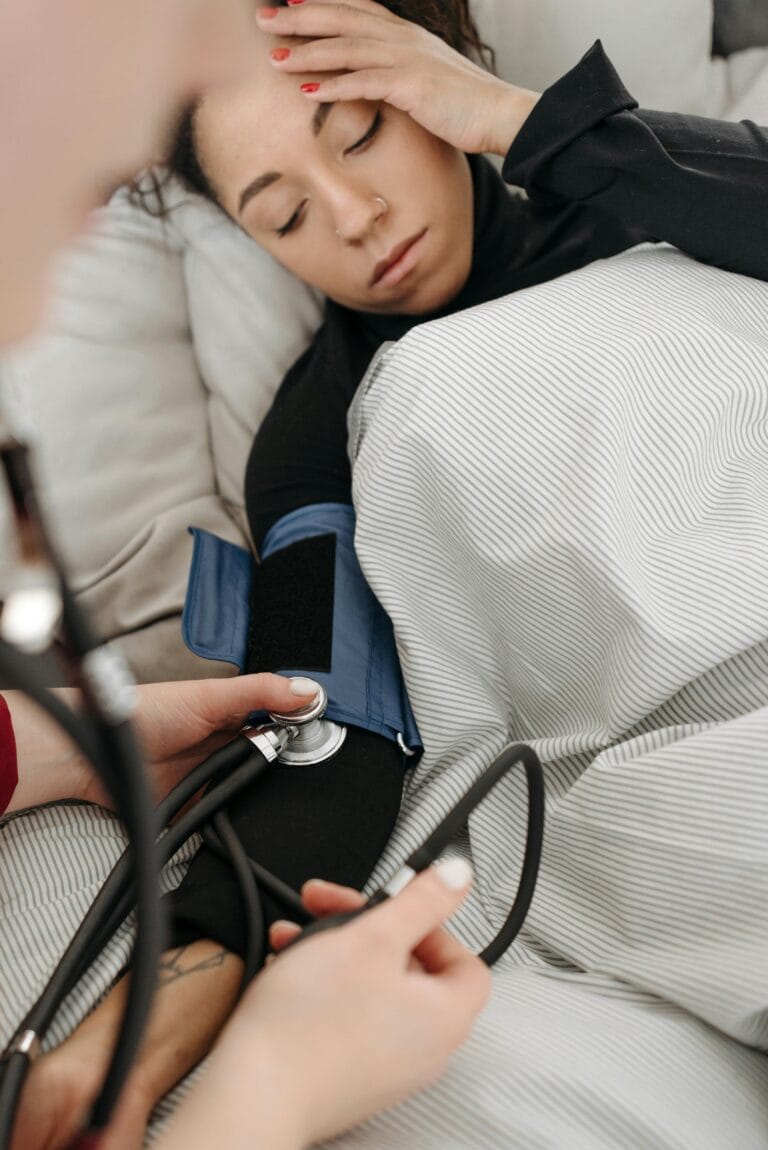FREE SHIPPING OVER $50
Are You Aging Faster Than You Think? An Expert’s Simple Guide to Your Real Age

We all have a birthday, a fixed number that tells us how many years we’ve been spinning around the sun. That’s our chronological age. But have you ever met someone who seems incredibly spry and full of life for their years, or, on the flip side, someone who seems to be “aging fast” and is always tired, no matter their age?
That’s where the fascinating concept of your “real age” comes in. It’s not just a feeling; it’s a measurable truth about how old your body actually is on a cellular level. And here’s the kicker: your biological age can be significantly different from your chronological age, often by decades!
Beyond the Birthday: What is Your “Real” Age (Biological Age)?
Your chronological age is fixed. Every year, you add another candle to the cake. But your biological age, also known as your physiological age, is a far more accurate reflection of your overall health and how your body’s cells, tissues, and organs are performing.
Think of it this way: two cars can be the same model year (chronological age), but one might have been meticulously maintained, driven gently, and regularly serviced, while the other has been driven hard, neglected, and is full of rust and wear. The well-maintained car would “biologically” be much younger than the neglected one.
In humans, biological age is determined by a complex interplay of your genetics, lifestyle choices (what you eat, how much you move, how you manage stress), environmental exposures, and even your social connections. Scientists measure biological age through various biomarkers, including everything from the length of your telomeres (caps on the ends of your DNA strands) to how well your immune system functions and how your blood sugar is regulated. The exciting part? Unlike your birth certificate, your biological age is dynamic and can be influenced!
The Silent Accelerators: What Makes You Age Faster?
Before we jump into assessing your real age, let’s understand the common culprits that secretly put your aging process into overdrive. Recognizing these can be the first step to slowing down the clock.
- Chronic Stress: Long-term stress keeps your body in a “fight-or-flight” mode, flooding it with hormones like cortisol. This constant alarm signal can shorten your telomeres, damage cells, and accelerate cellular aging.
- Poor Diet: Consuming too many processed foods, sugary drinks, unhealthy fats, and refined carbohydrates fuels chronic inflammation and oxidative stress, both major drivers of premature aging and disease. It starves your body of the nutrients it needs for repair and regeneration.
- Lack of Physical Activity: A sedentary lifestyle contributes to muscle loss, bone density decline, reduced cardiovascular health, and poor circulation. Your body needs movement to stay vital and youthful.
- Insufficient Sleep: Sleep is your body’s repair shop. During deep sleep, your cells regenerate, hormones rebalance, and toxins are cleared from your brain. Chronic sleep deprivation sabotages these essential processes, leading to faster wear and tear.
- Environmental Toxins: Constant exposure to pollutants, chemicals in personal care products, and even certain food additives can accumulate in your body, increasing the burden on your detoxification systems and causing cellular damage.
- Dehydration: Even mild, chronic dehydration can accelerate aging in your skin, brain, joints, and organs by impairing cellular function and nutrient transport.
- Social Isolation: Believe it or not, strong social connections are linked to longer, healthier lives. Loneliness and lack of social engagement can actually contribute to faster biological aging.
An Expert’s Simple Guide: How to Assess Your Real Age (Key Indicators)
While advanced tests like epigenetic clocks (which measure changes in your DNA) are cutting-edge tools used by scientists, you don’t need a lab to get a pretty good sense of your real age. An expert’s simple guide involves paying attention to these accessible indicators that reflect your underlying biological age:
1. Your Physical Fitness & Mobility
This isn’t just about being able to run a marathon. It’s about your everyday movement.
- How to assess: Can you climb stairs without getting winded? How easily do you get up from the floor? Can you balance on one leg for 10-30 seconds? What’s your grip strength like (can you open jars easily)? How flexible are your joints?
- Why it matters: Good mobility, strength, and balance indicate healthy muscles, bones, and joints – key markers of a younger biological age.
2. Your Energy Levels & Fatigue
Are you consistently energetic throughout the day, or do you frequently hit a wall?
- How to assess: Do you wake feeling refreshed? Do you experience daily “slumps” that require caffeine or sugar? Do you have enough energy for your daily tasks and hobbies?
- Why it matters: Persistent fatigue often signals underlying issues like poor mitochondrial function, inflammation, or hormonal imbalances, all of which accelerate aging.
3. Your Cognitive Function & Memory
Are you mentally sharp, or are “brain fog” and forgetfulness becoming more frequent?
- How to assess: How easily do you learn new things? Can you recall names and details quickly? Do you maintain focus on tasks, or do you find your mind wandering?
- Why it matters: Sharp cognitive function and good memory indicate healthy brain cells and efficient neural pathways, reflecting a younger brain age.
4. Your Skin Health & Appearance
While wrinkles are natural, the overall health and elasticity of your skin can be a window into your inner health.
- How to assess: Is your skin hydrated and plump? Does it bounce back easily when gently pinched? Do you have excessive age spots or a dull complexion that doesn’t match your chronological age?
- Why it matters: Skin health reflects hydration, collagen production, and protection from oxidative damage – all influenced by your overall internal health.
5. Your Metabolic Health
This involves how your body processes food for energy and manages blood sugar.
- How to assess: Do you maintain a relatively stable weight without extreme dieting? Do you experience dramatic blood sugar crashes or constant cravings? Are your blood pressure and cholesterol levels generally in a healthy range (if you know them)?
- Why it matters: Stable metabolic health suggests good insulin sensitivity and efficient energy use, preventing damage that leads to conditions like type 2 diabetes and cardiovascular health issues, which accelerate aging.
6. Your Sleep Quality
More than just hours slept, it’s about the quality of your sleep.
- How to assess: Do you fall asleep easily? Do you stay asleep through the night? Do you wake feeling rested and recharged, or do you hit snooze repeatedly?
- Why it matters: Restorative sleep is paramount for cellular repair, hormone balance, and brain health. Chronic poor sleep actively speeds up biological aging.
7. Your Stress Resilience
How effectively do you cope with the inevitable stresses of life?
- How to assess: Do small stressors overwhelm you? Can you bounce back quickly from challenging situations, or do you ruminate? Do you have healthy outlets for stress?
- Why it matters: Chronic, unmanaged stress is a potent accelerant of biological aging, impacting everything from your telomeres to your immune system.
8. Signs of Inflammation
While a complex marker, certain physical signs can hint at chronic inflammation.
- How to assess: Do you frequently experience unexplained joint pain? Do you have persistent swelling or puffiness? Are you struggling with digestive issues that could indicate gut inflammation?
- Why it matters: Chronic low-grade inflammation is a silent killer, contributing to almost every age-related disease and accelerating cellular aging.
Turning Back the Clock: Simple Strategies to Improve Your Biological Age
Here are simple, yet powerful strategies:
- Prioritize Nutrient-Dense Foods: Embrace a diet rich in whole, unprocessed foods. Focus on colorful fruits and vegetables (loaded with antioxidants), lean proteins, healthy fats (avocado, olive oil, nuts, seeds), and whole grains. This provides the building blocks for cellular repair and reduces inflammation.
- Move Your Body Daily: Find ways to incorporate regular physical activity into your routine. Aim for a mix of cardiovascular exercise, strength training (to maintain muscle mass), and flexibility/balance work. Even short walks add up!
- Master Your Sleep: Make sleep a non-negotiable priority. Create a consistent sleep schedule, optimize your bedroom environment for darkness and coolness, and avoid screens before bed. Aim for 7-9 hours of quality, restorative sleep.
- Manage Stress Effectively: Find healthy outlets for stress. This could be mindfulness meditation, deep breathing exercises, yoga, spending time in nature, or engaging in hobbies you love. Reducing chronic stress is paramount for cellular health.
- Stay Hydrated: Drink plenty of pure water throughout the day. Water is essential for every cellular process, nutrient transport, and detoxification. Aim for at least half your body weight in ounces daily, adjusting for activity and climate.
- Foster Social Connections: Actively nurture your relationships with friends, family, and community. Strong social bonds are profoundly linked to both physical longevity and mental well-being.
- Limit Toxins: Reduce your exposure to environmental pollutants, avoid smoking, minimize excessive alcohol consumption, and opt for natural products where possible.
- Regular Check-ups & Partner with Your Healthcare Provider: Don’t skip your annual physicals. Work with your doctor to monitor key biomarkers, address any underlying health conditions, and discuss personalized longevity strategies.
Conclusion
It can be unsettling to realize you might be aging faster than you think. But this understanding isn’t meant to cause worry; it’s meant to empower you. Your biological age is a dynamic reflection of your daily choices, and it offers an incredible roadmap for intervention.
By paying attention to the simple indicators we’ve discussed and consistently implementing these lifestyle strategies, you’re not just hoping for longevity; you’re actively building it. Every glass of water, every nutritious meal, every mindful breath, and every good night’s sleep contributes to a younger, more resilient you on a cellular level.
Related Articles
- You’re Dehydrated & Don’t Know It: This Secret Is Aging Your Body FAST! (The Simple Fix)
- Doctor’s Urgent Warning: Your Shower Habit is Secretly AGING Your Skin!
- Forget Pills: A New Study Says This Daily Walk Secret Will Make You Feel 10+ Years Younger
- Stop the Clock: This Protein Hack Might Be The Key to Aging Backwards
- Defy Your Age: Japanese Men’s Strict Routines That Made One Look Younger Than a Decade Ago







